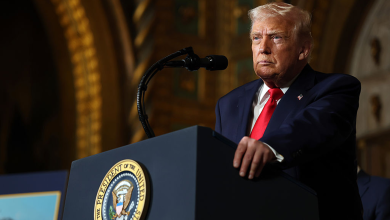Trump Student Loan Repayment Changes Leave Borrowers Facing Delays And Tax Bills


Millions of federal student-loan borrowers are stuck in limbo as changes to repayment and forgiveness programs under President Donald Trump’s administration face delays. Advocates and lawmakers warn that if the Department of Education does not speed up its processing, borrowers could soon be hit with unexpected tax bills on debt relief.
According to Business Insider, the Department of Education reported that as of July 31, more than 1.3 million income-driven repayment (IDR) applications were pending, along with 72,730 requests for Public Service Loan Forgiveness (PSLF). These backlogs stem from ongoing litigation and policy shifts tied to the administration’s overhaul of student-loan repayment.
The delays come at a critical time. A temporary provision in the 2021 American Rescue Plan made student-loan forgiveness tax-free, but that protection expires on Jan. 1, 2026. If borrowers’ forgiveness applications are not processed by then, the amounts forgiven could be taxed as income, creating thousands of dollars in potential liabilities.
Per Business Insider, the American Federation of Teachers (AFT) recently filed a class-action, amended from a previous complaint against the Department of Education, arguing that the government must act quickly to cancel loans for borrowers who already met forgiveness thresholds. One plaintiff, for example, has been making payments for over 25 years. Despite qualifying for relief, her forgiveness has not been processed, forcing her to continue paying $700 a month to avoid default — and leaving her exposed to a tax bill if her relief does not go through this year.
Trump Student Loan Repayment
Trump’s student-loan repayment law has also restructured the system, per another Business Insider report. Under his “Big Beautiful Bill,” it eliminated many existing repayment plans and replaced them with two options: a standard repayment plan and a new Repayment Assistance Plan. The standard plan offers fixed payments for 10-25 years based on the loan’s original balance, while the Repayment Assistance Plan sets payments at 1% to 10% of a borrower’s income and offers forgiveness after 30 years. The law also dismantled former President Joe Biden’s Saving on a Valuable Education (SAVE) plan, which would have allowed some borrowers forgiveness after as few as 10 years of payments, as AFROTECH™ previously reported.
Interest resumed on the 8 million borrowers enrolled in SAVE on Aug. 1, and the department advised them to switch to one of the new income-driven repayment plans. But forgiveness processing has also been delayed under the Income-Based Repayment (IBR) plan — a program created by Congress in 2007 that was unrelated to the recent SAVE lawsuits. The Education Department has said it will not complete these payment counts until winter 2025.
Lawmakers are raising concerns. Sen. Bernie Sanders (D-Vermont) and several colleagues wrote a letter to Education Secretary Linda McMahon, urging the department to accelerate processing of IBR forgiveness, warning that borrowers could face “significant tax bills on debt relief that should have been granted to them without penalty.”
The uncertainty has left borrowers frustrated. Justin Krull, a 42-year-old borrower enrolled in SAVE, told Business Insider previously that while he wants to stay current on his payments, the constant policy changes make it hard to plan.
“We want to take care of our responsibilities,” Krull said. “We just want a system in place that we can rely on and be able to financially plan for our futures.”
For now, millions of borrowers are left waiting — navigating new repayment rules, legal battles, and the looming end of tax-free forgiveness.




